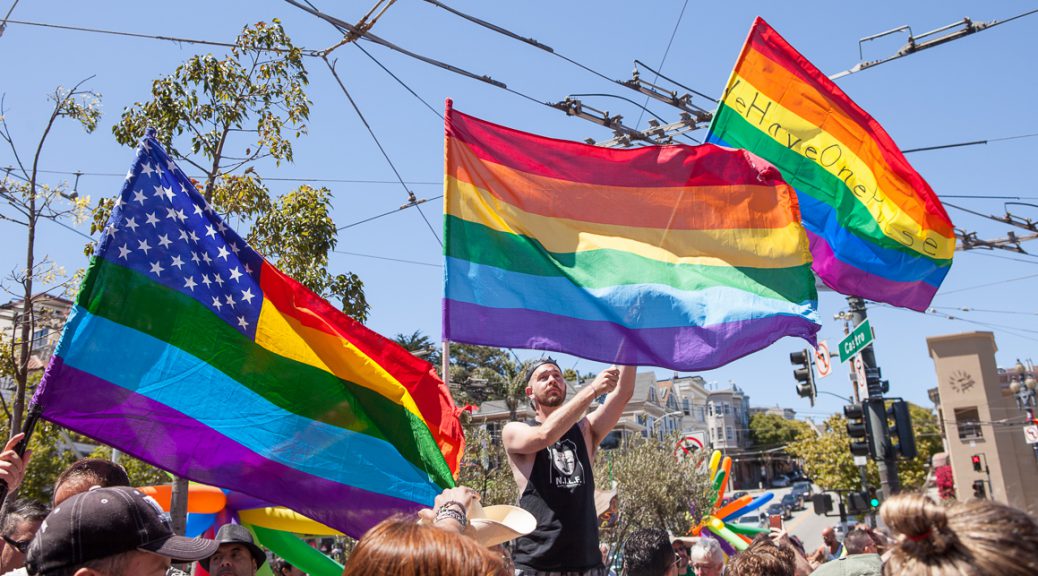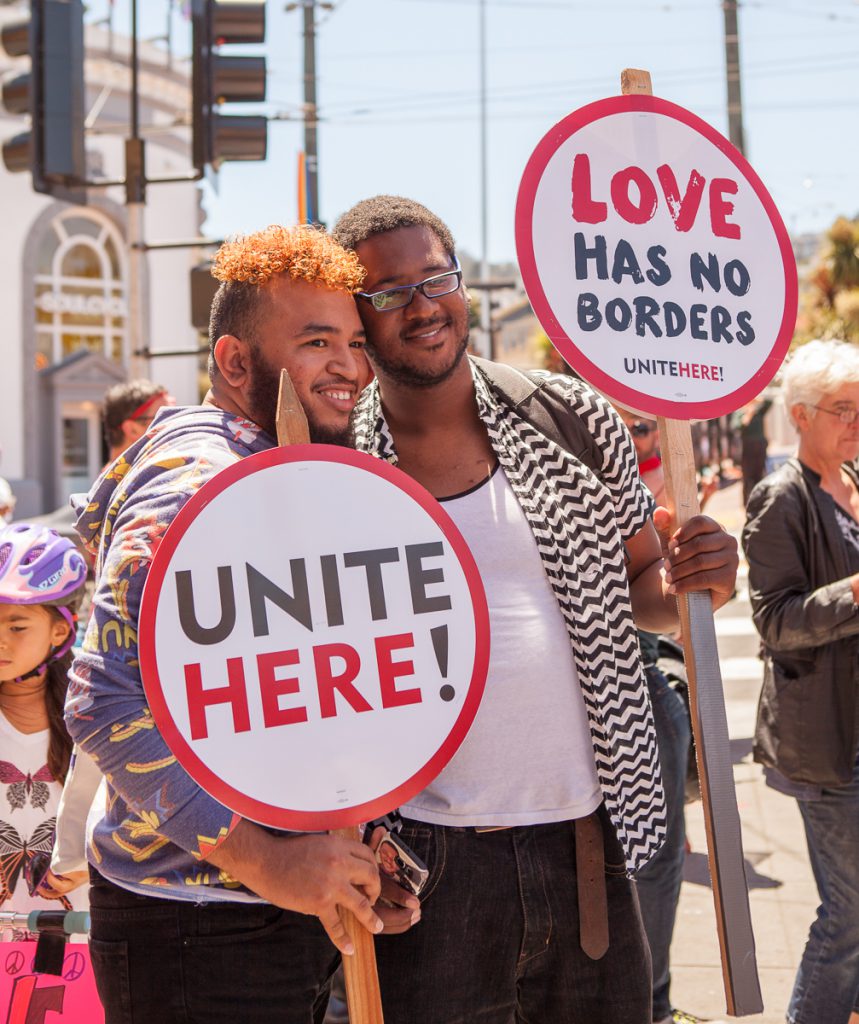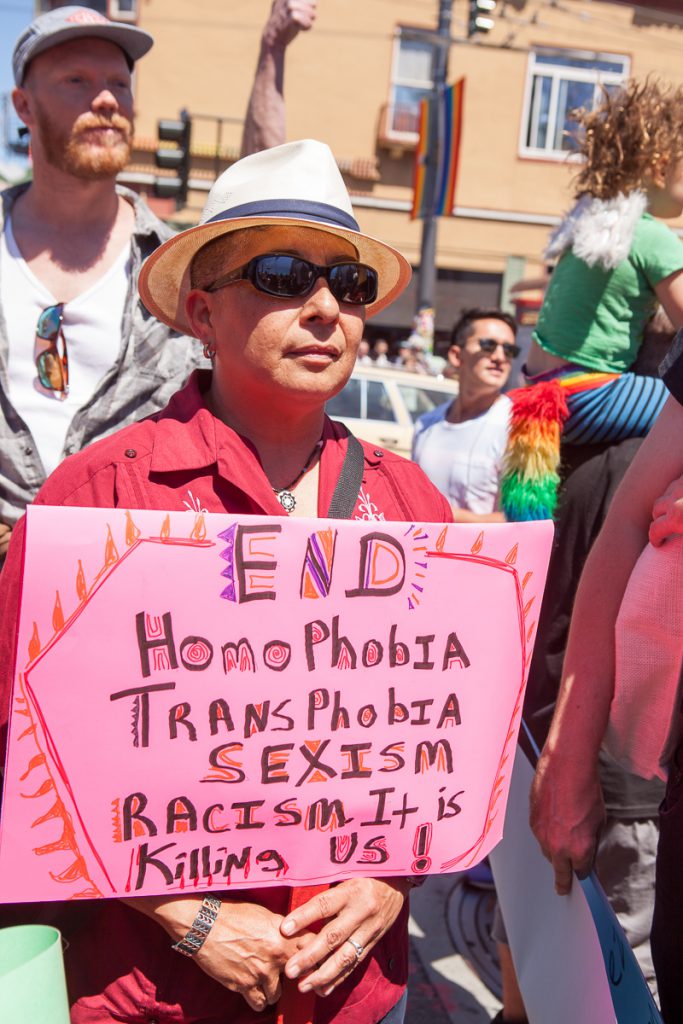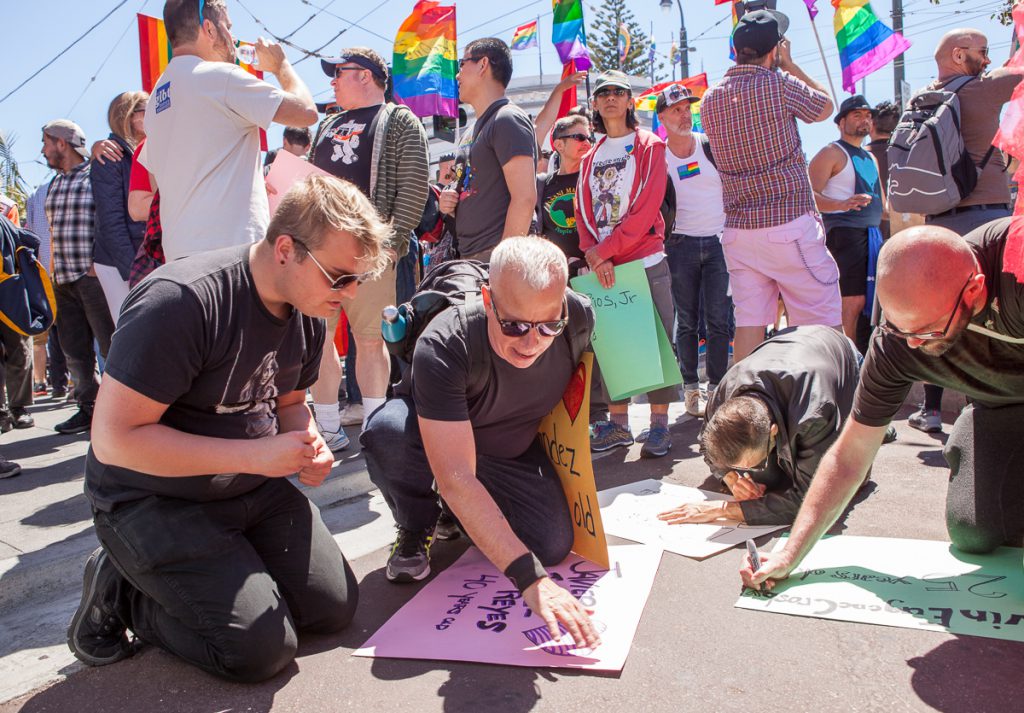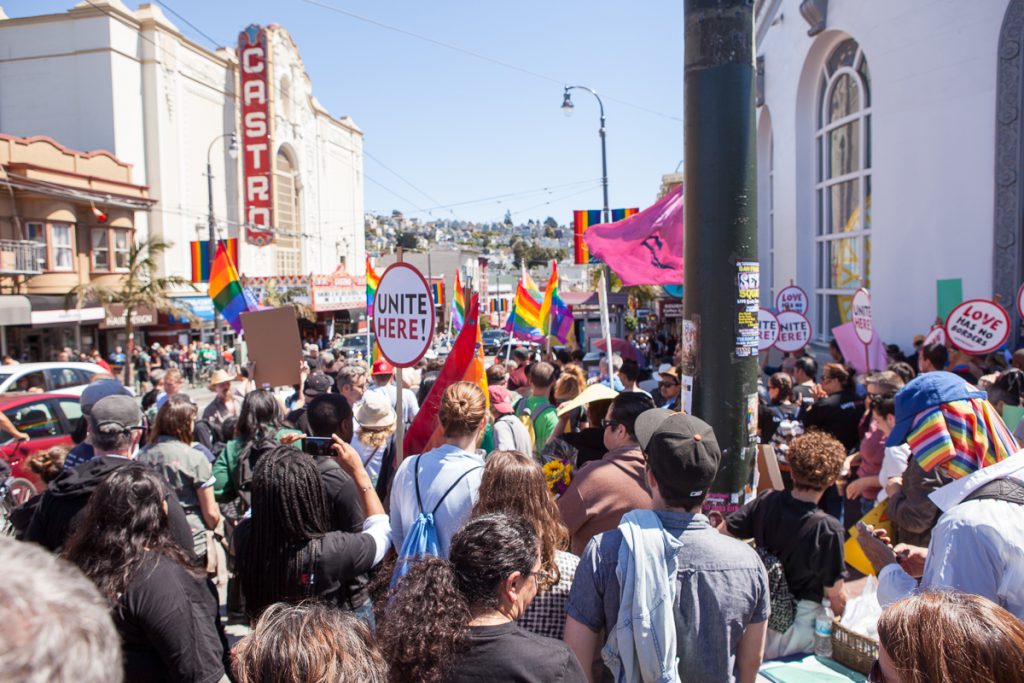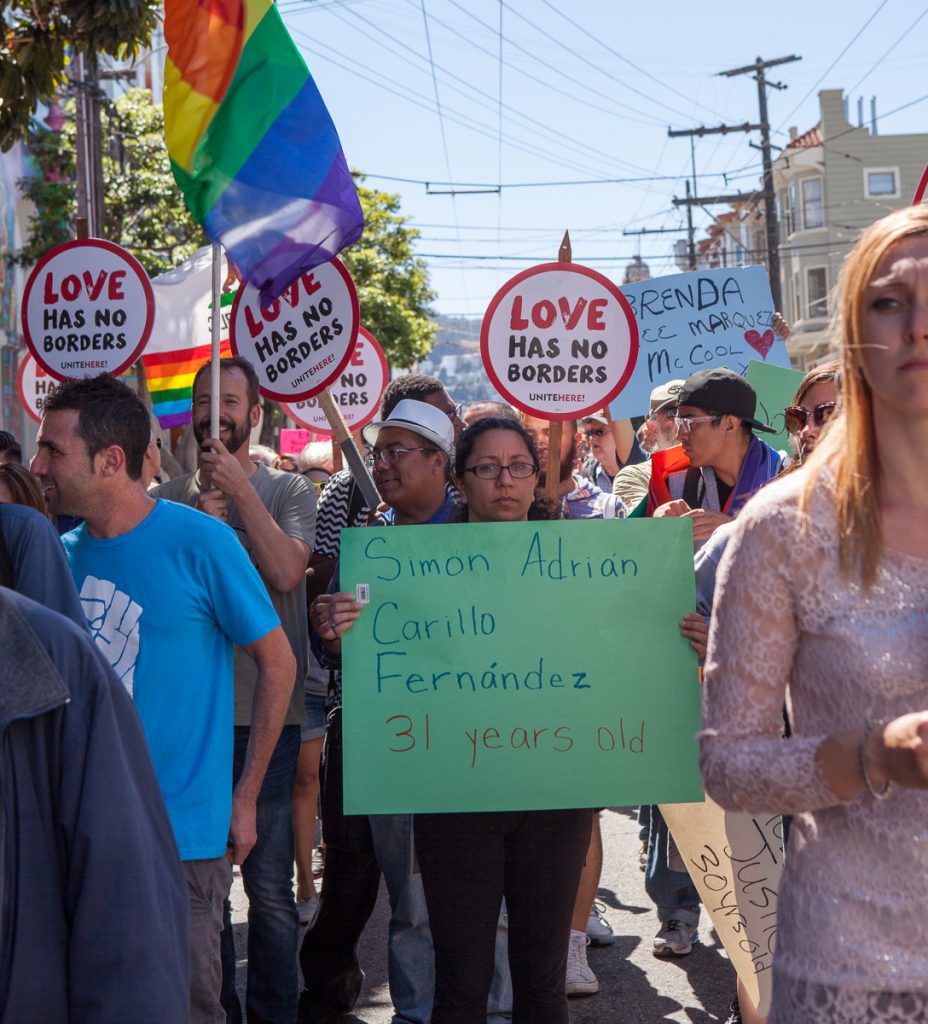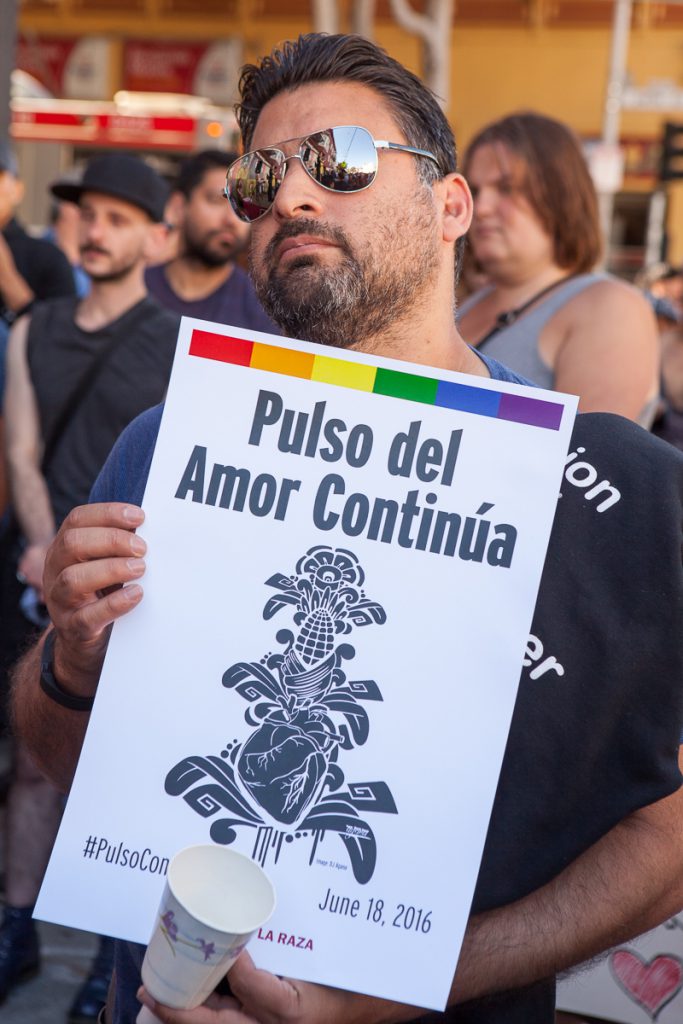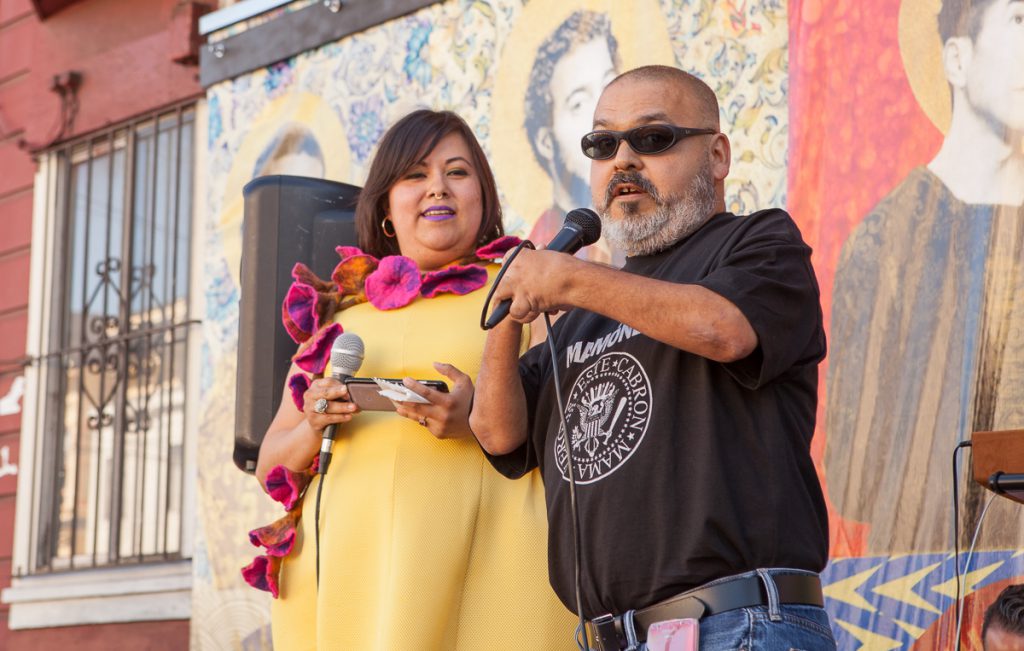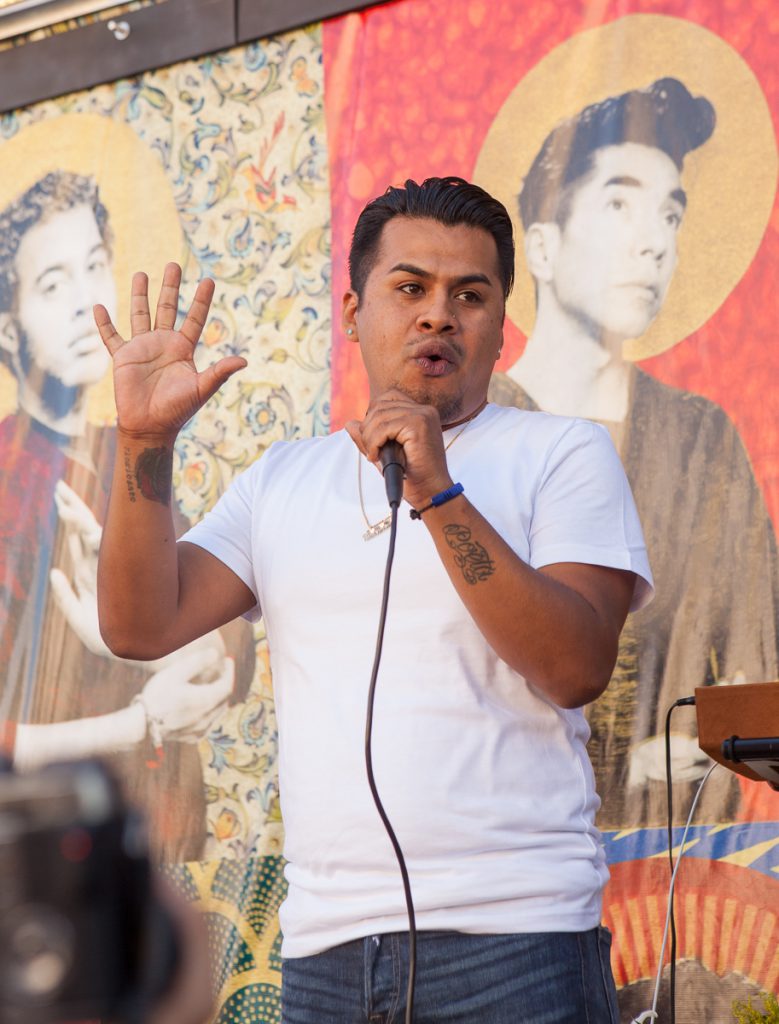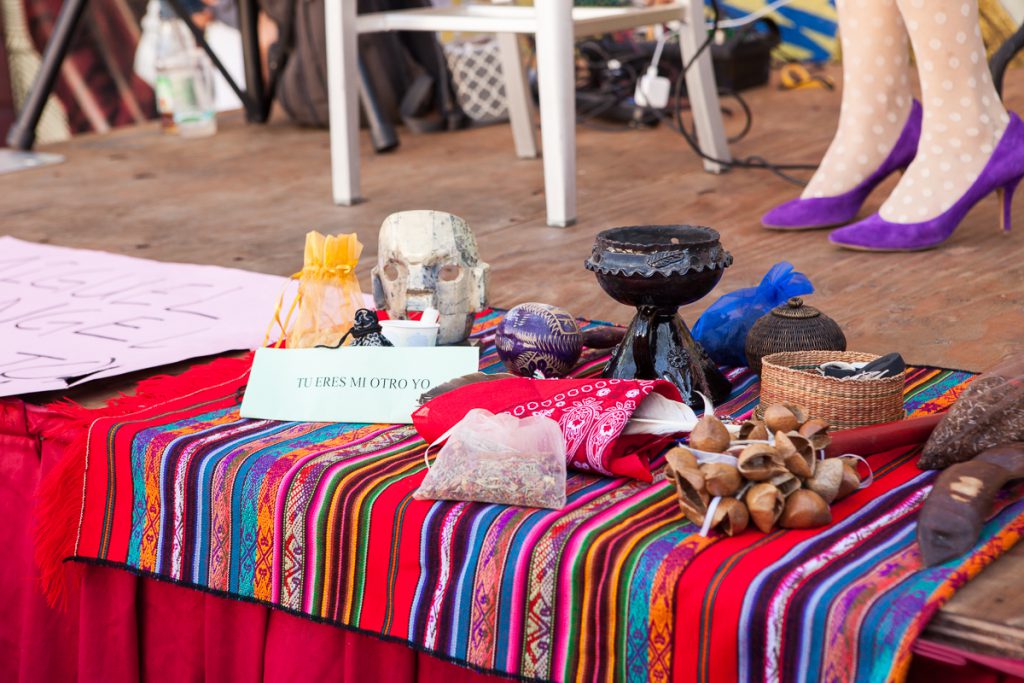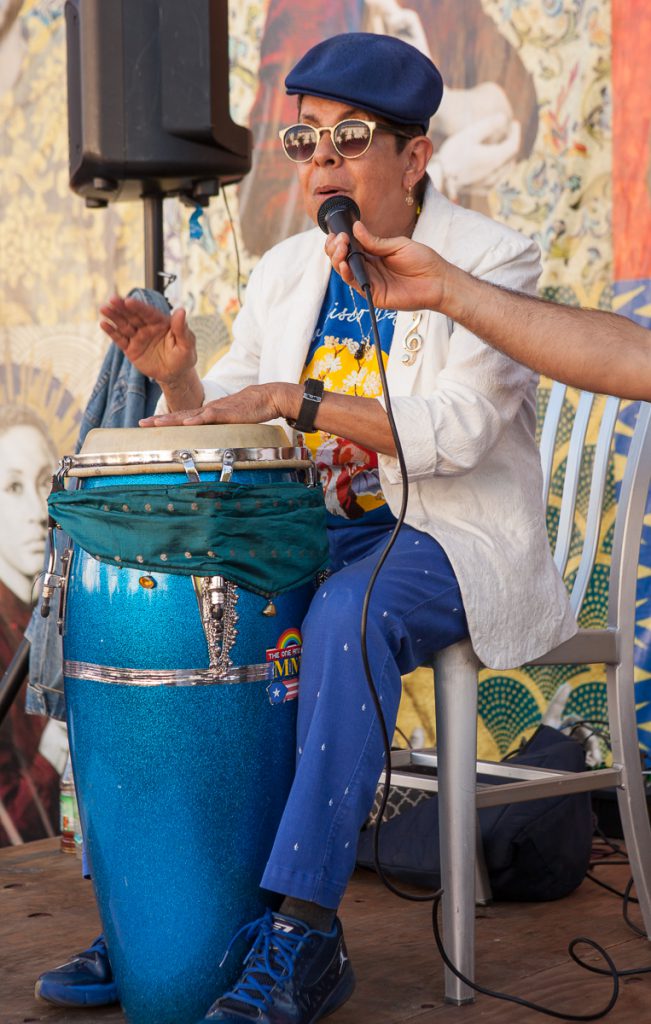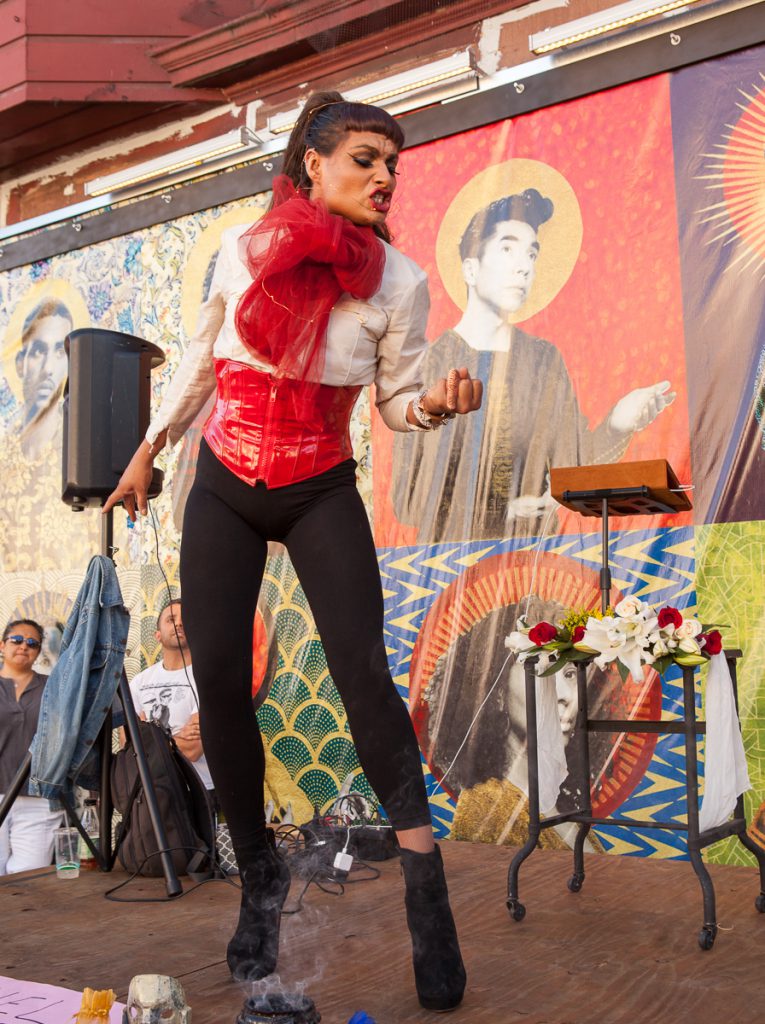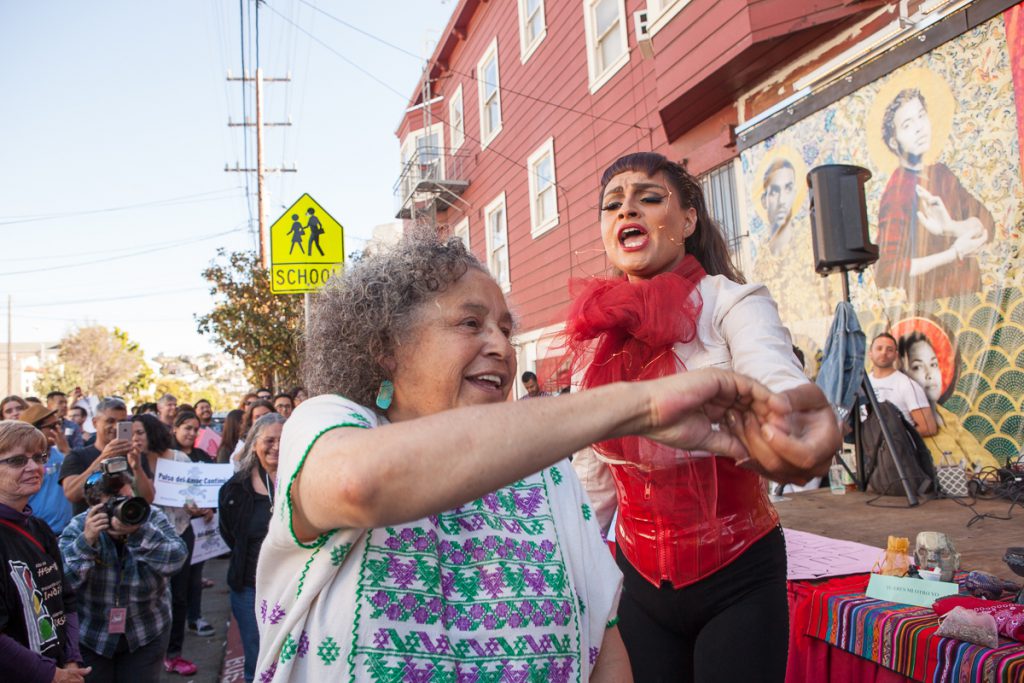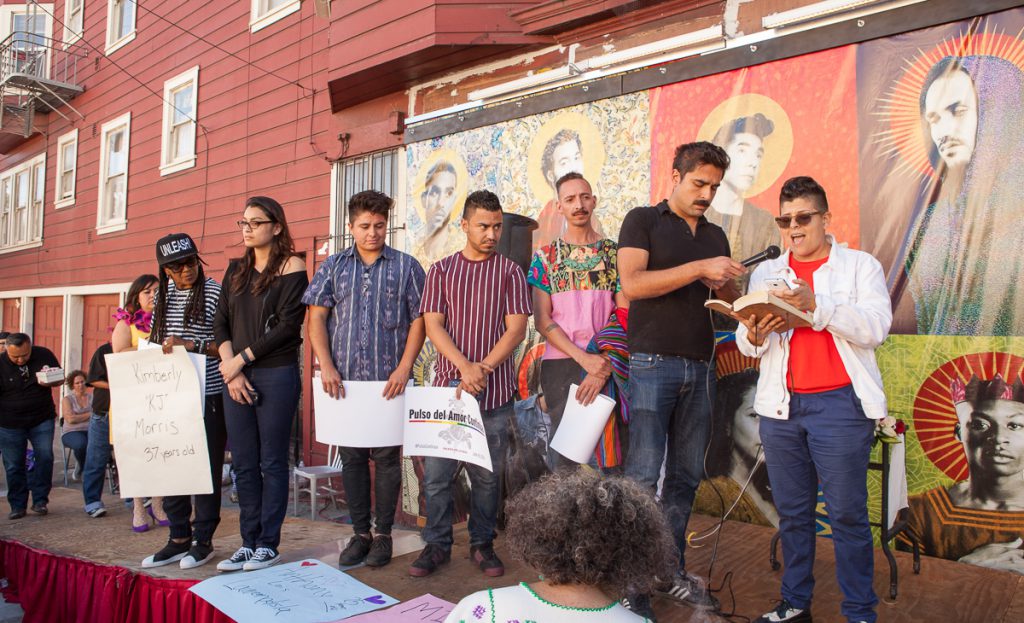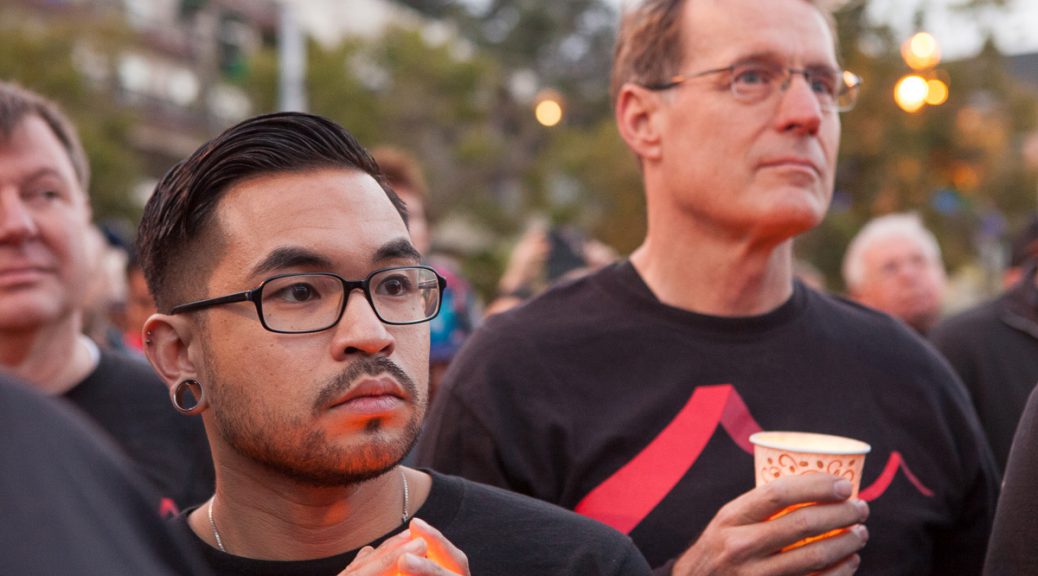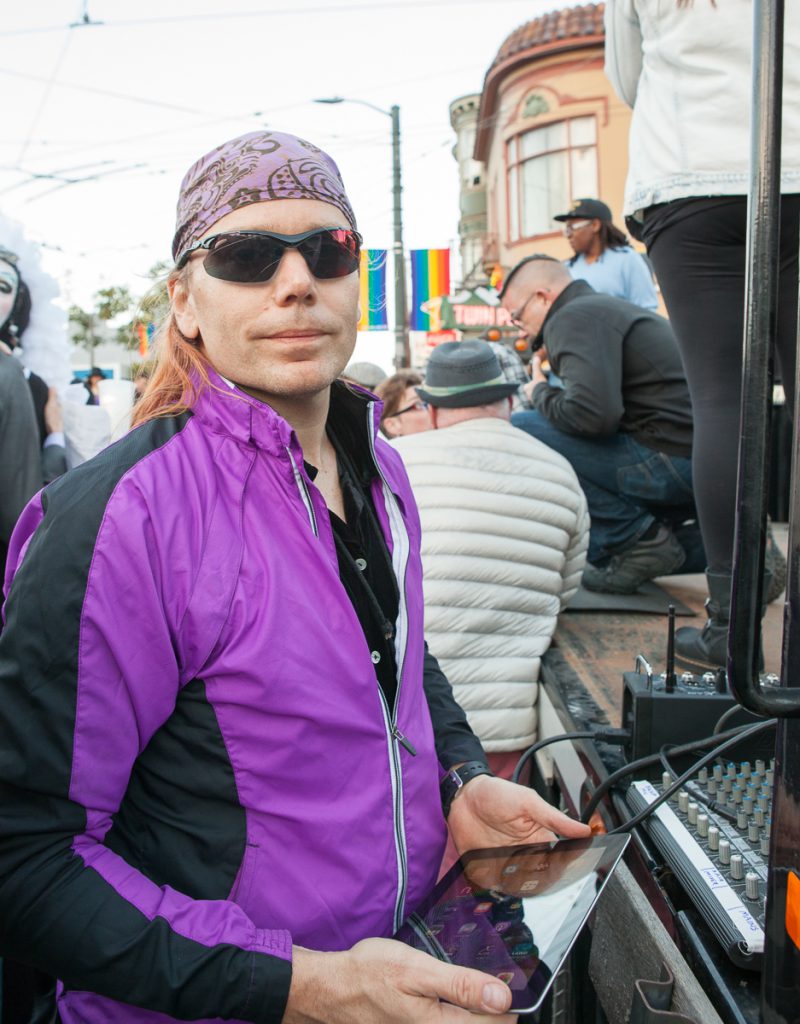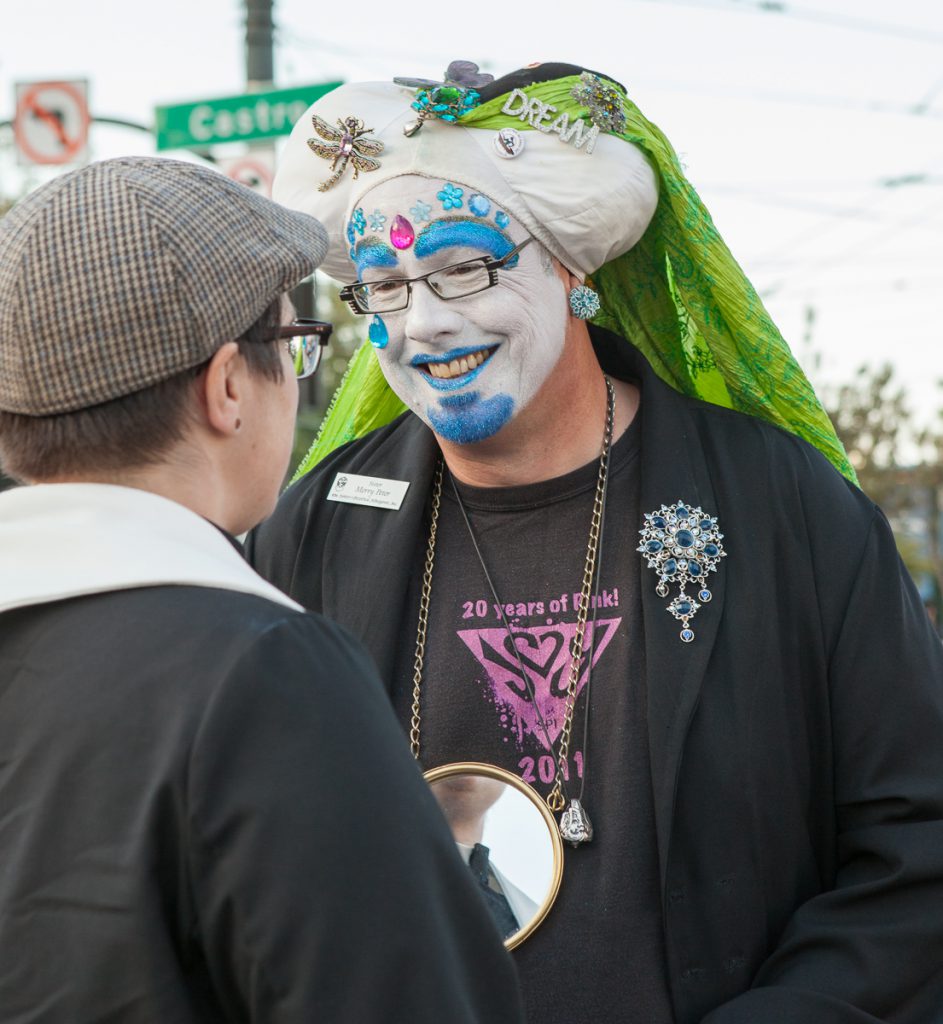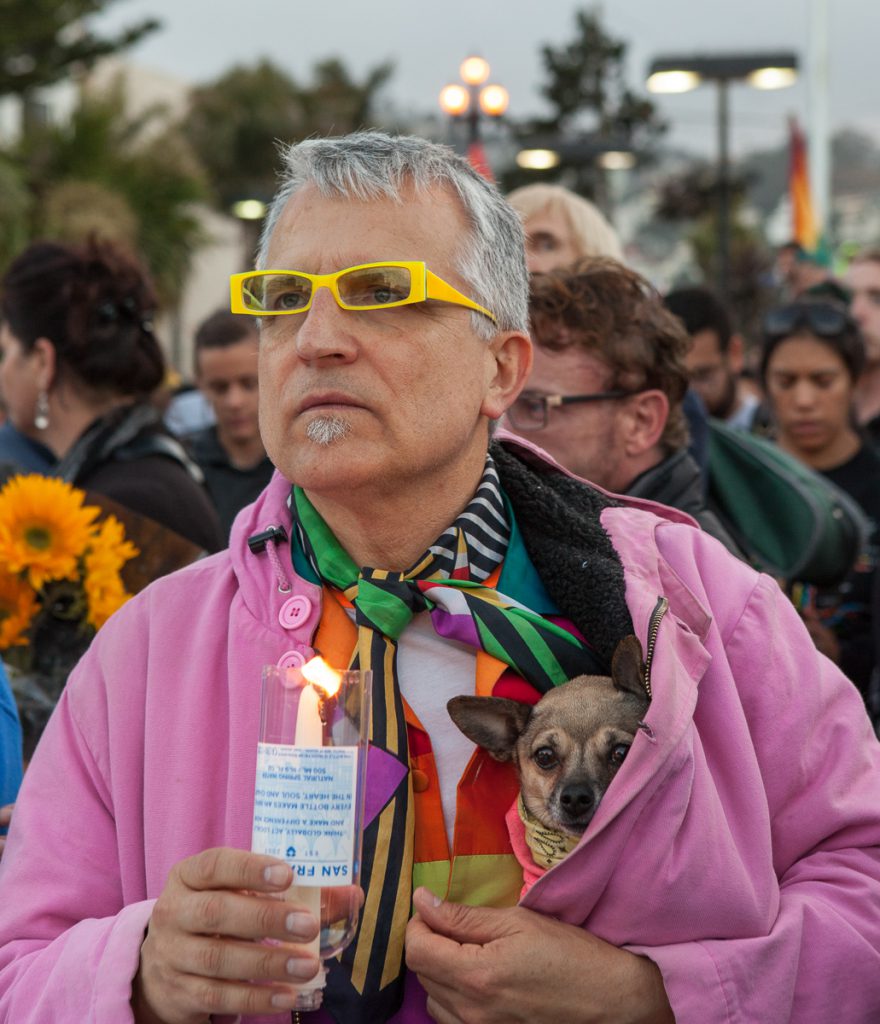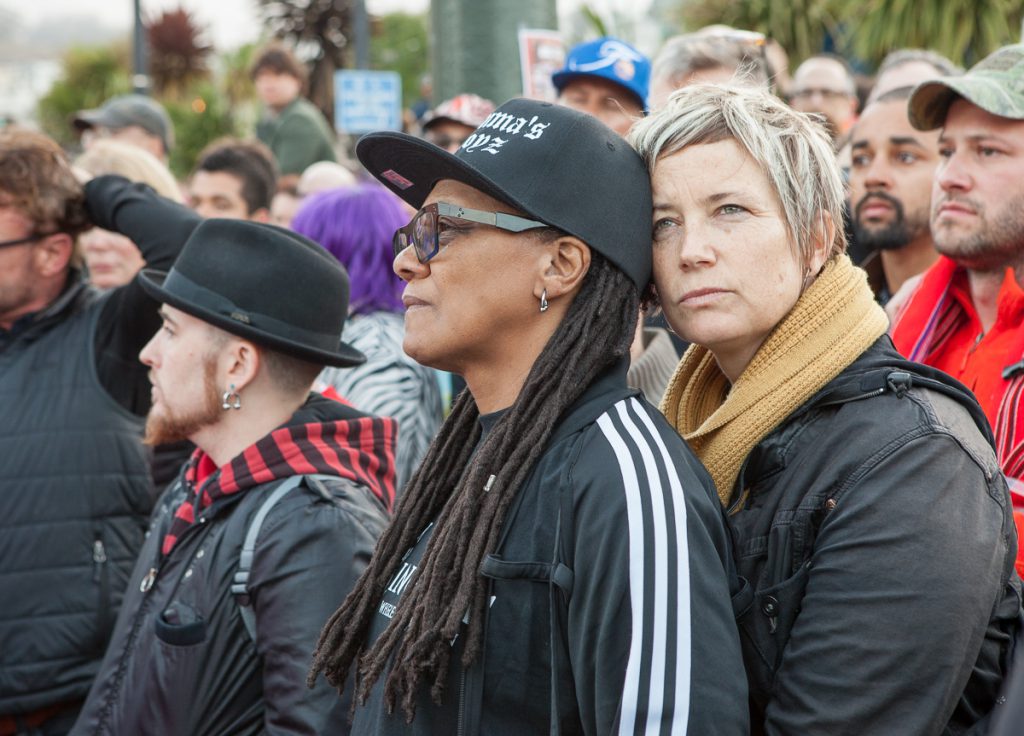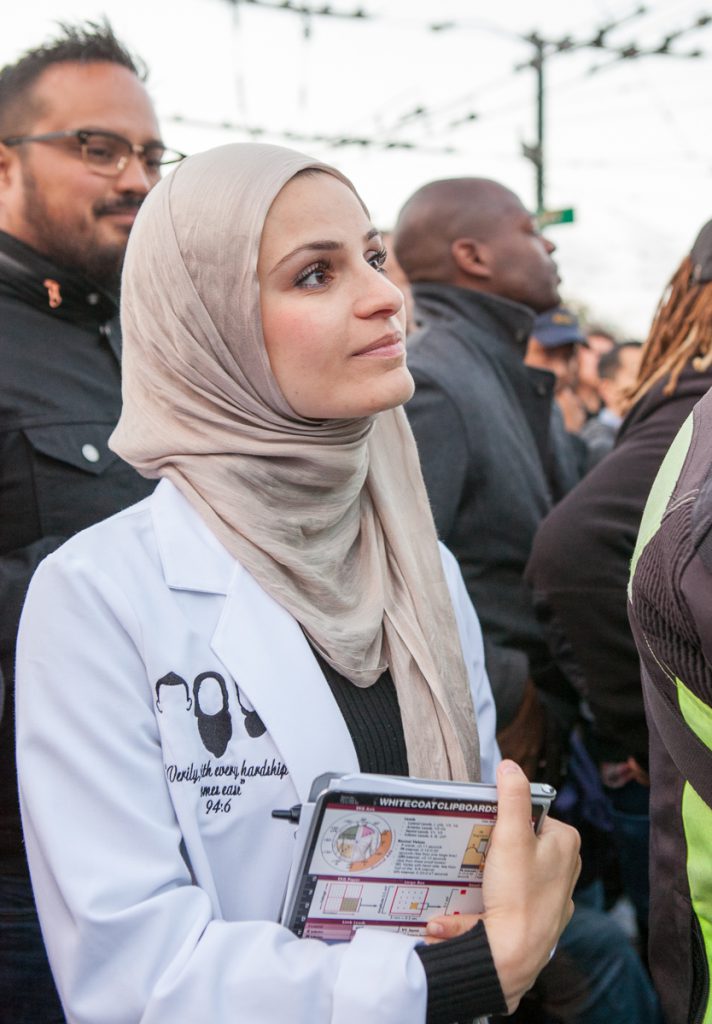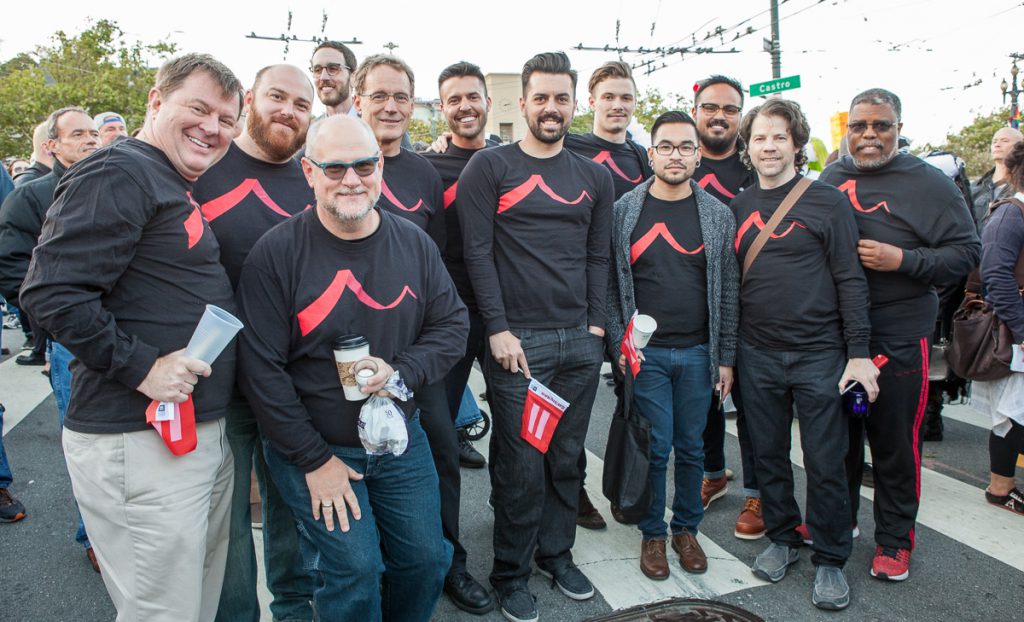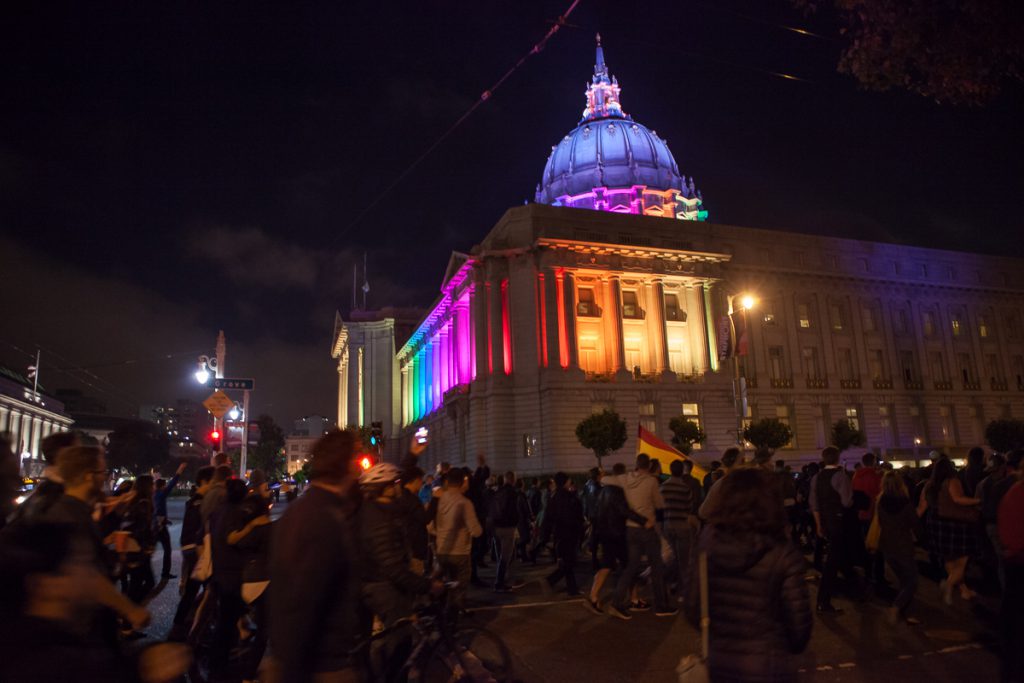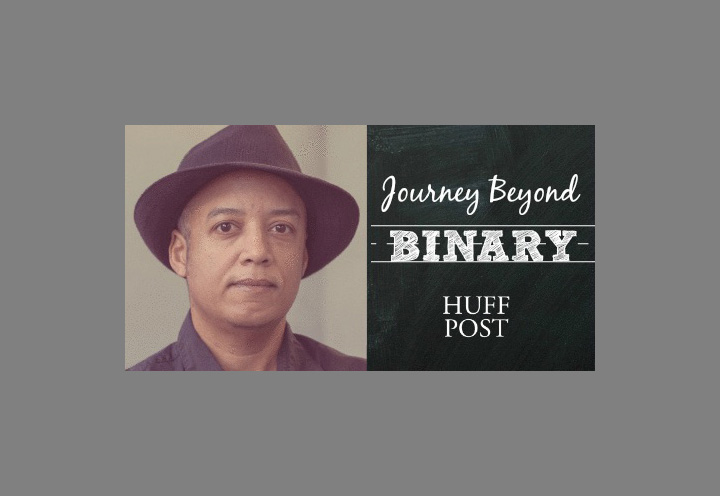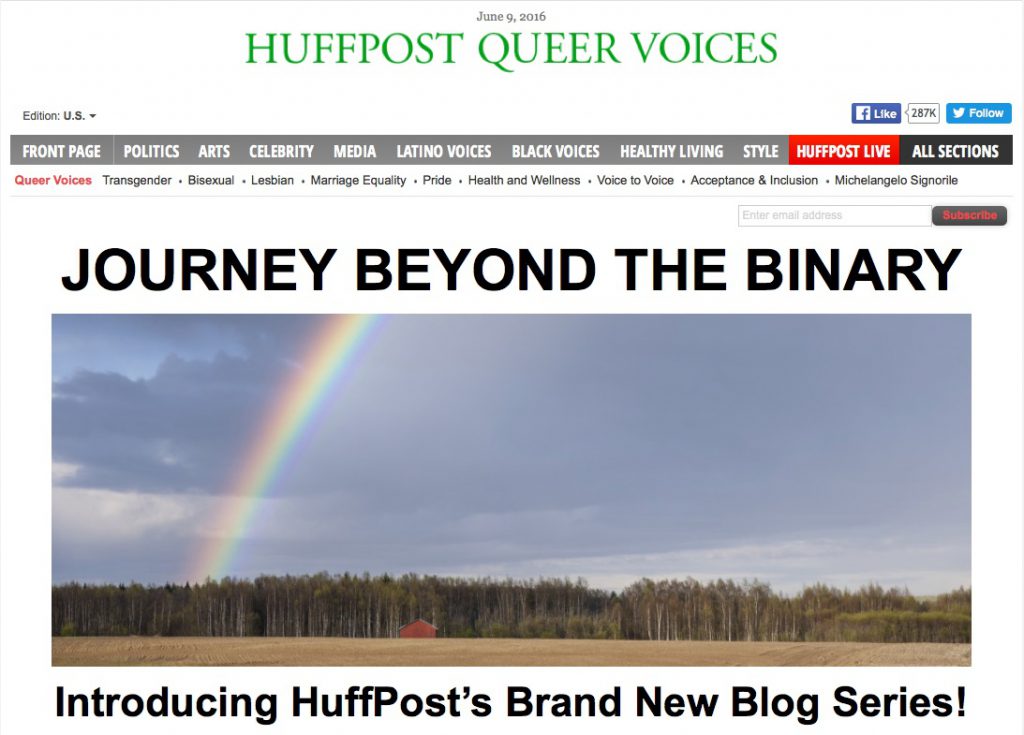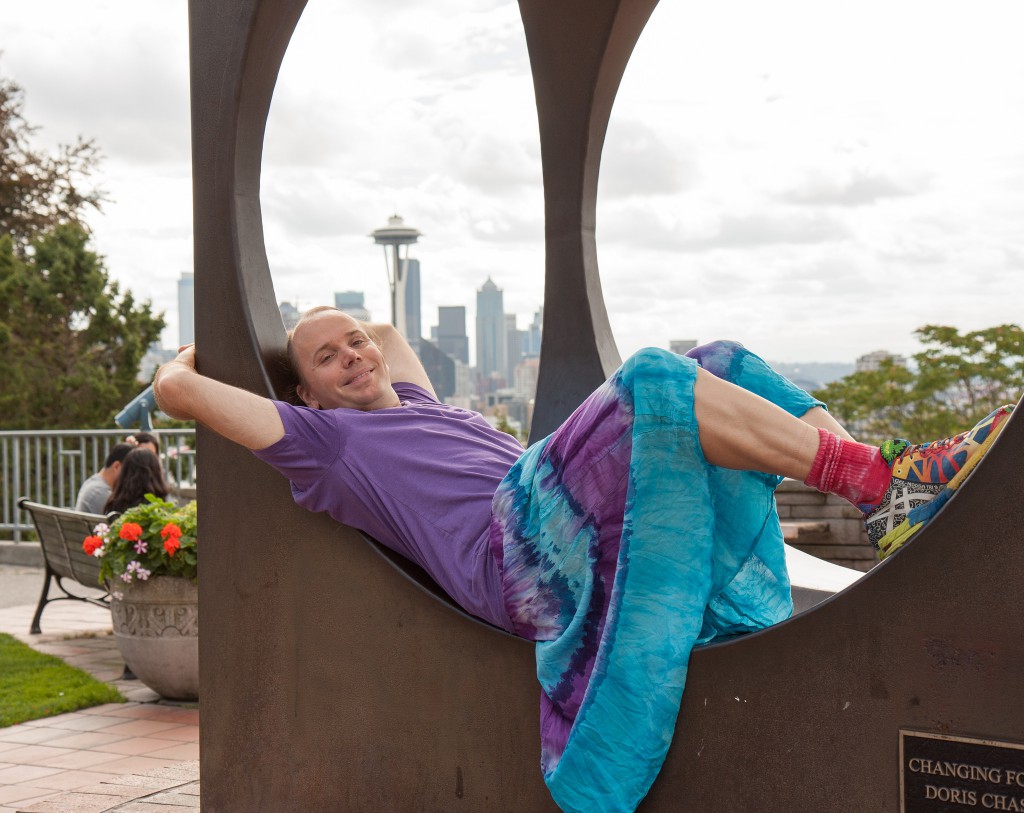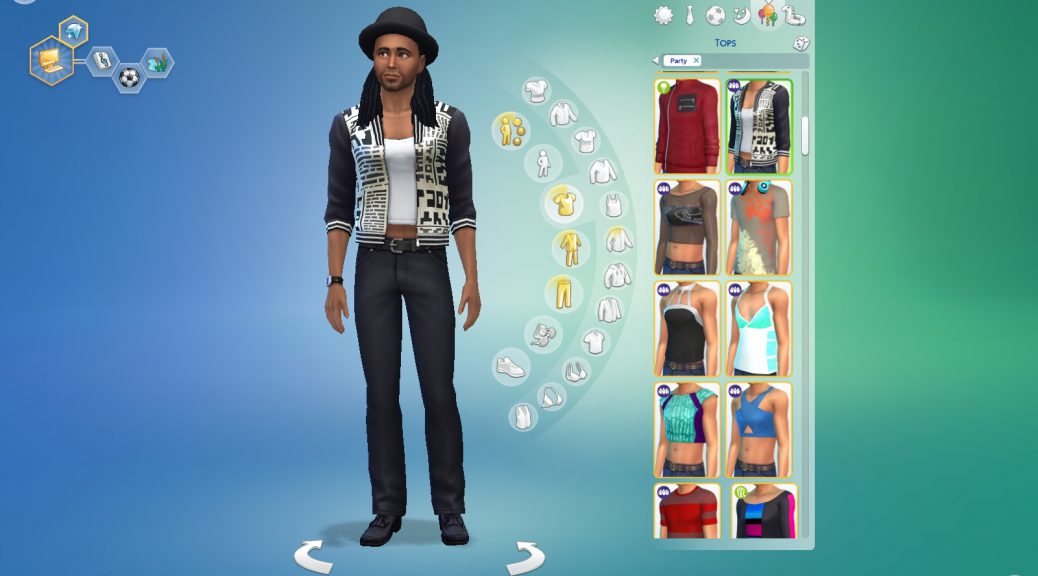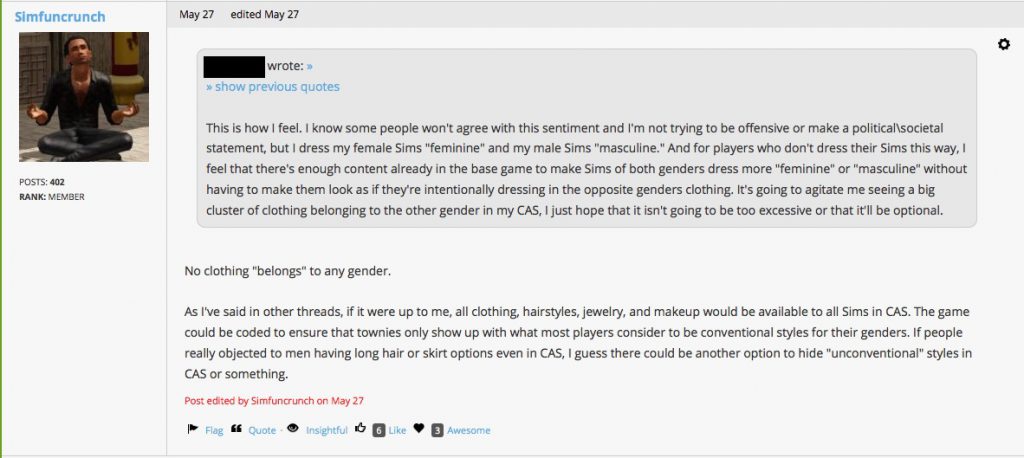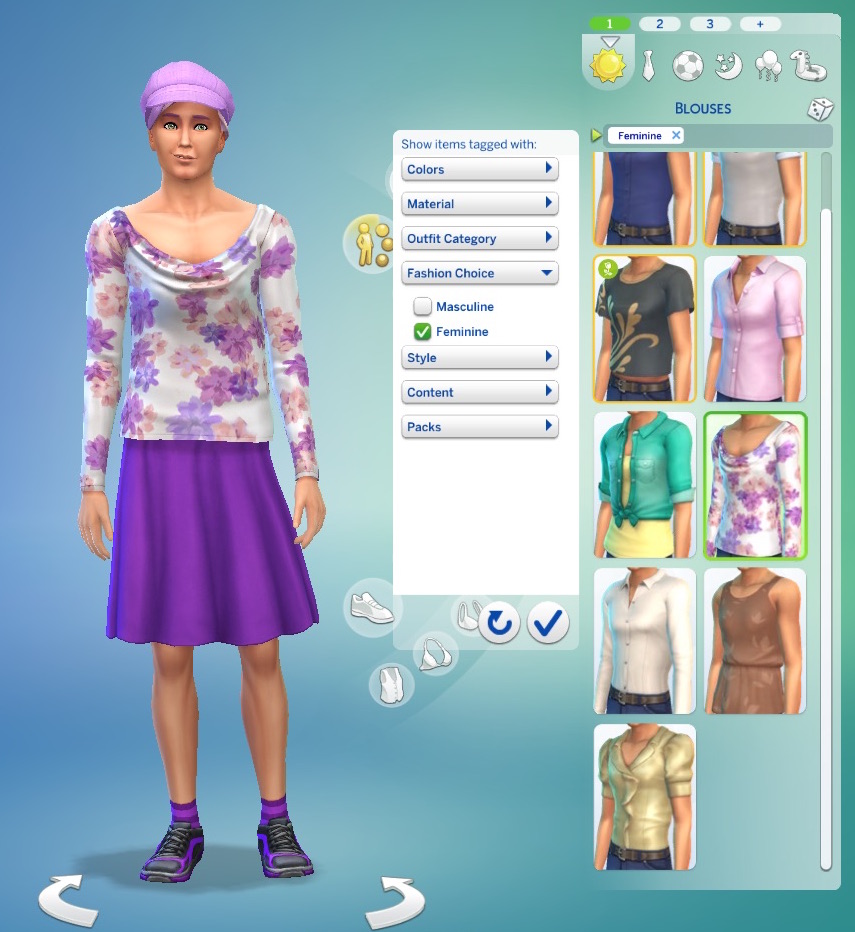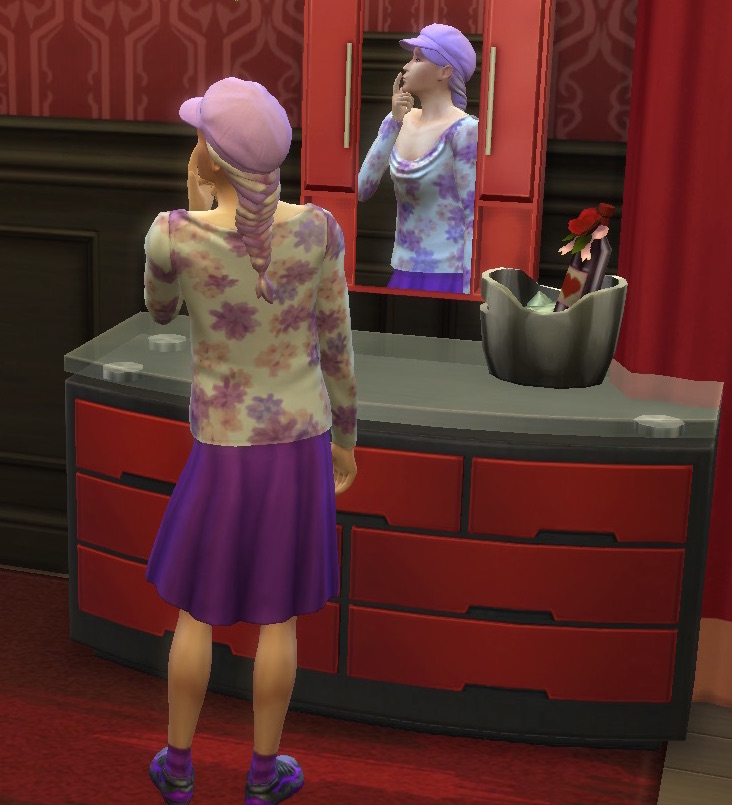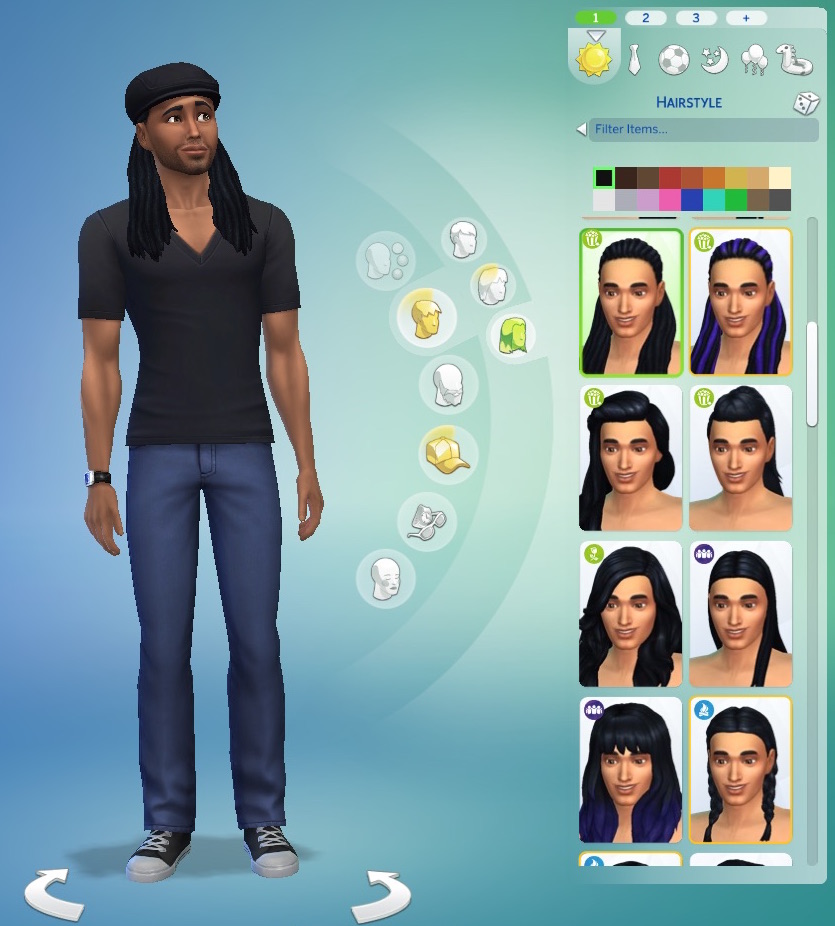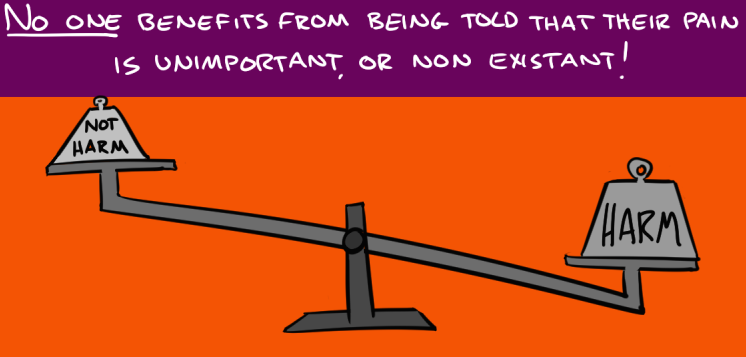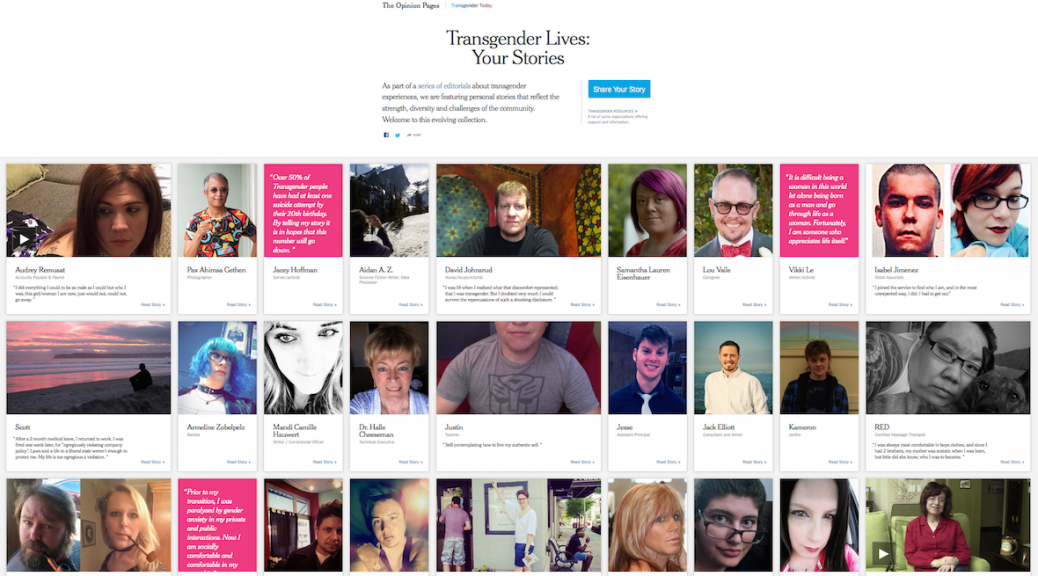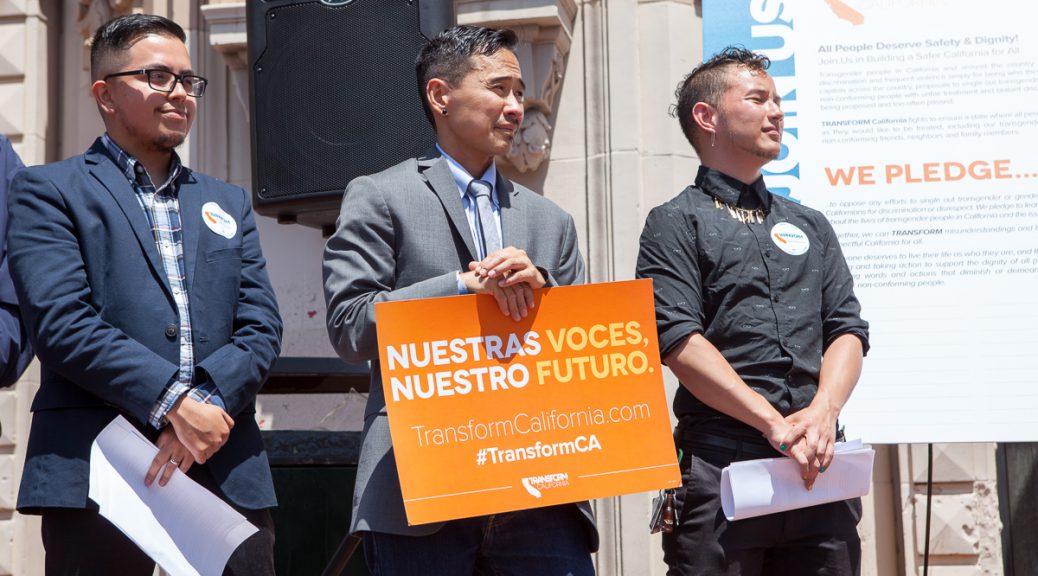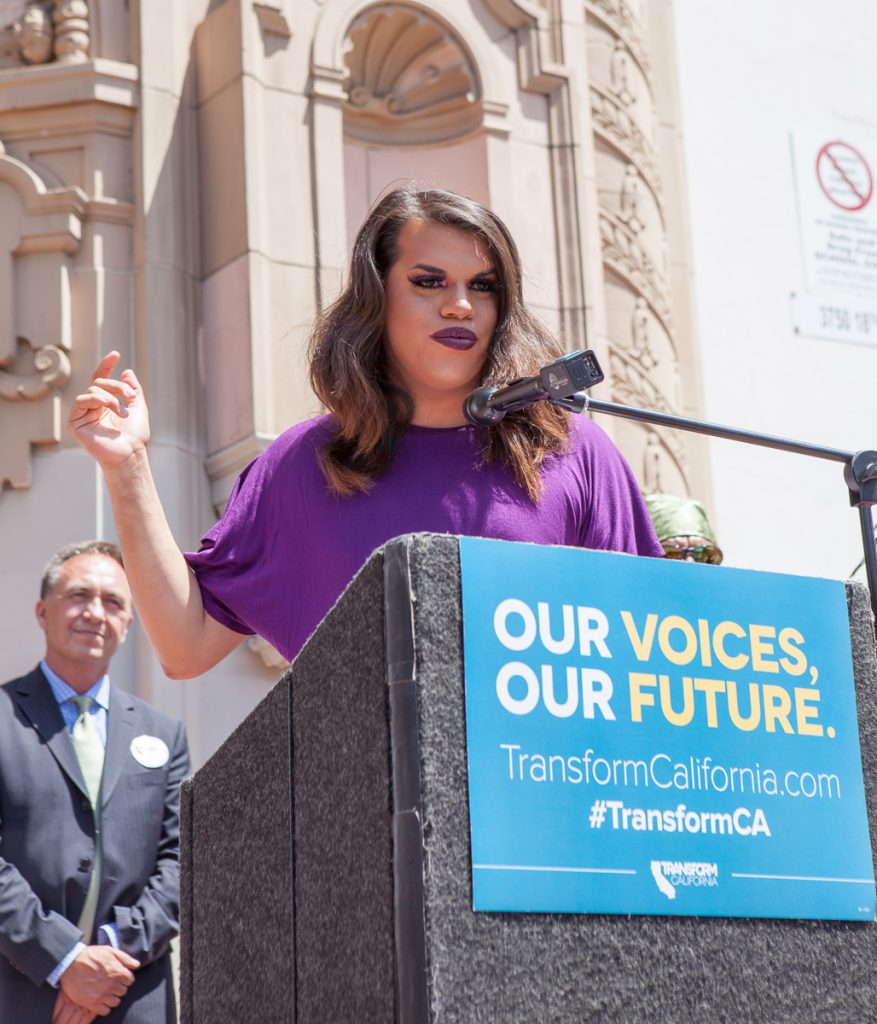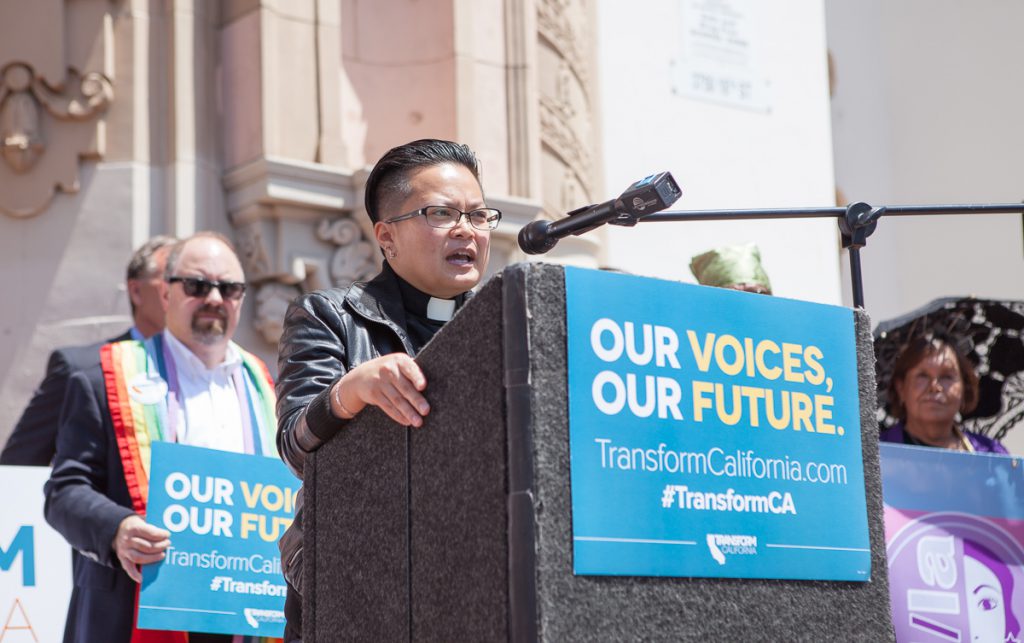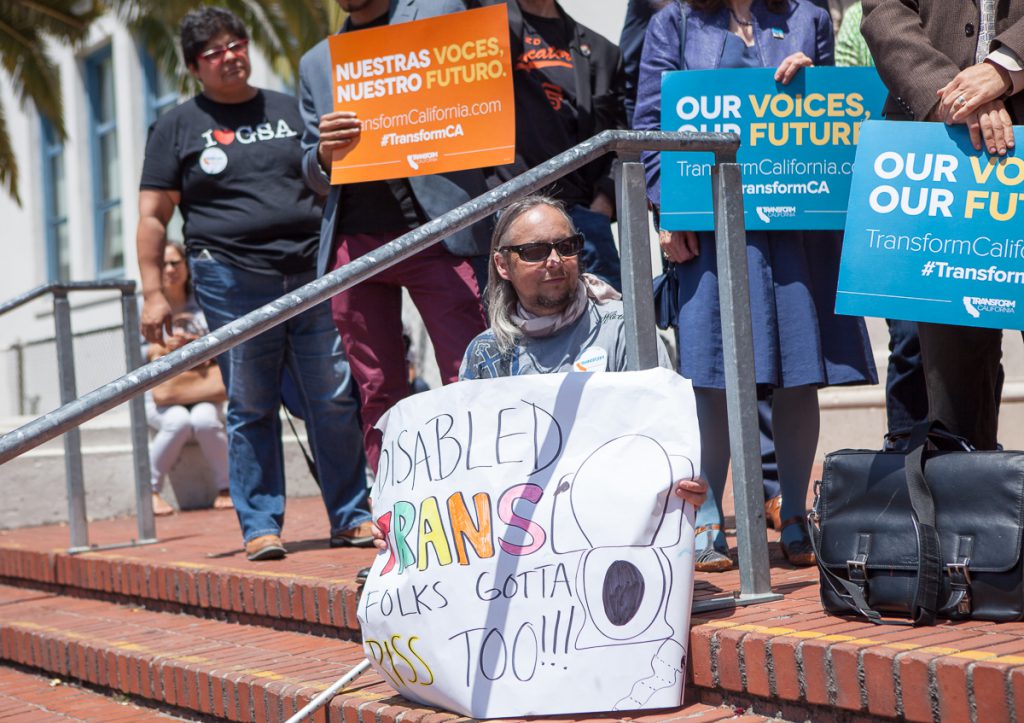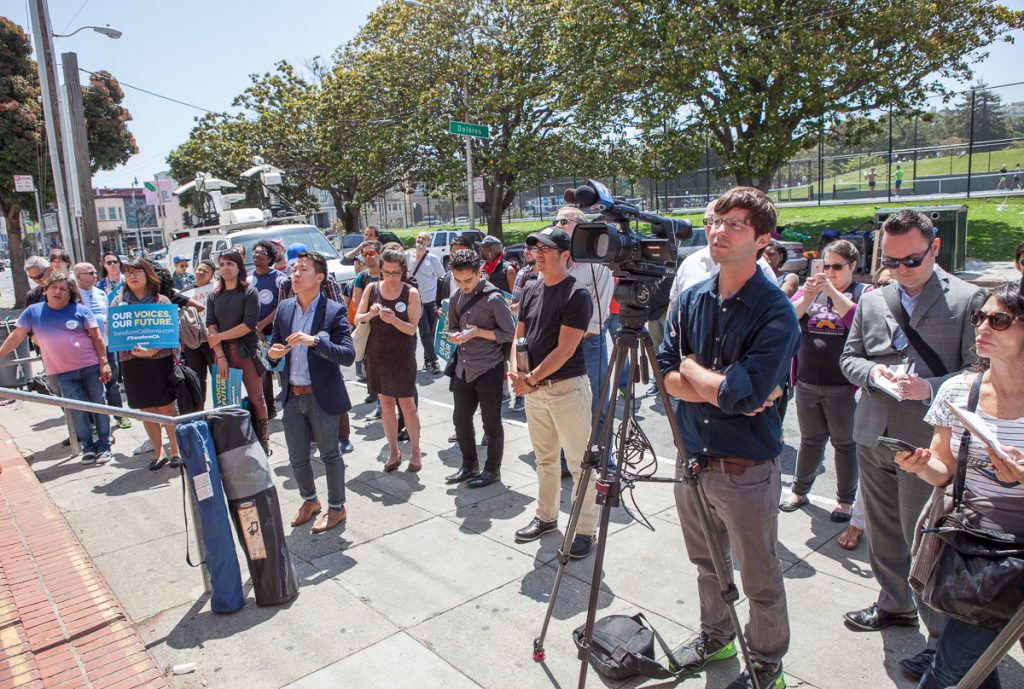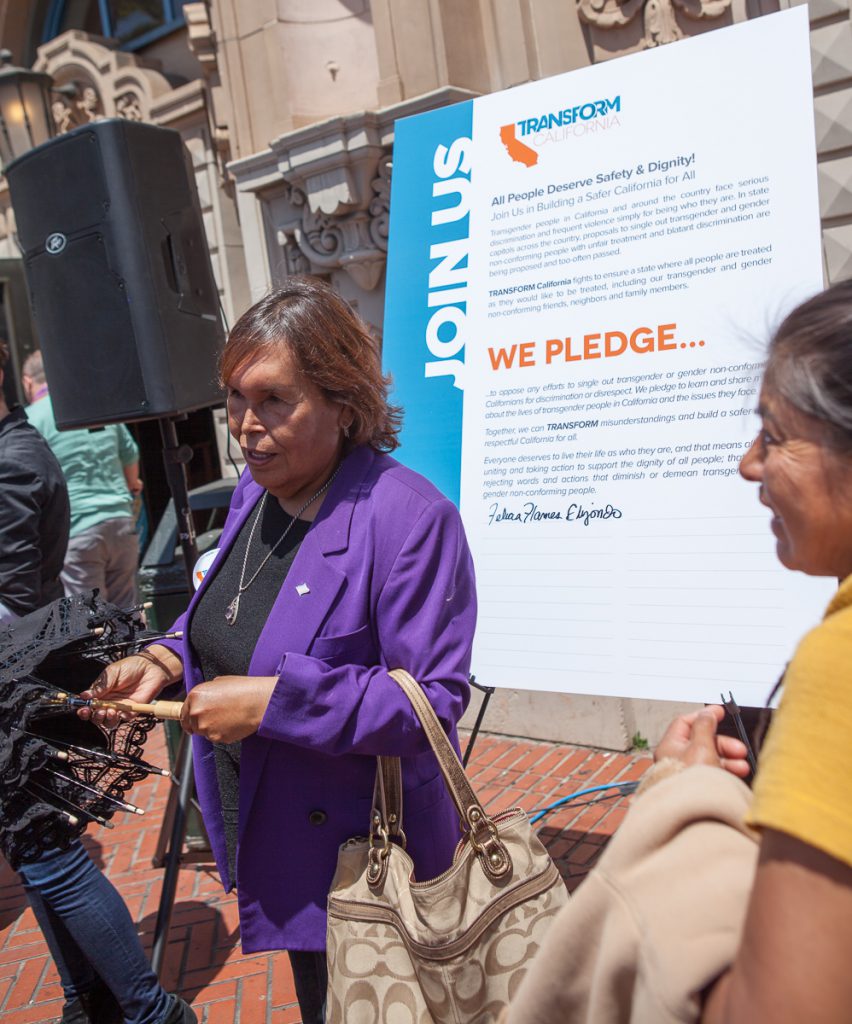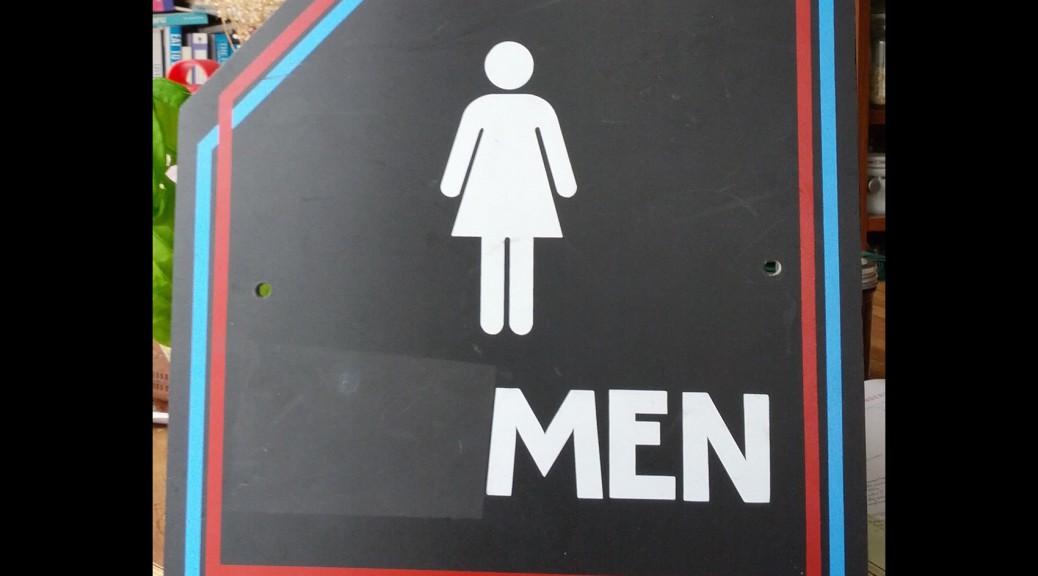[Image: Activists in the Castro, San Francisco, hold three rainbow flags aloft. One includes the stars of the United States flag, and another includes the words “We Have One Pulse.”]
Last week I was contacted by Richard Bowie of VegNews magazine for my thoughts, as a queer vegan, on the Orlando massacre. Today, the magazine published the responses from myself and several other LGBTQ vegans, including my friend and fellow Black Vegans Rock advisory board member Christopher Sebastian, and my friend Saryta Rodriguez who I interviewed earlier this year.
I was aware my remarks would be edited, and I am glad they included what I said about erasure of the Latinx community, which I also posted about this weekend. I said a lot more though, so I’m including my full responses below (the questions themselves are paraphrased). I’ve added links to relevant blog posts and articles. Thanks to Richard Bowie and VegNews for reaching out to queer vegans, and particularly to queer vegans of color, on this issue.
On my initial reaction to the news
My initial reaction was muted, because, sadly, I’d become so accustomed to reports of gun violence that I was somewhat jaded and numb. It took a few hours of reading and absorbing what had happened for the horror to really sink in. I’ve had feelings of anger, fear, and hopelessness; feelings I experience daily as a queer black trans person who suffers from depression, but now even more magnified. These feelings have been tempered only by the privilege of living in a very LGBTQ-friendly community; thousands of San Franciscans came out to hold space at Harvey Milk Plaza in a vigil for the dead.
On drawing a connection between the queer community and ethical veganism
As a person who identifies as agender, I have seen and been personally affected by the false binaries humans have erected of gay and straight, male and female, masculine and feminine. Anyone who strays outside of the charmed circle of cisgender heteronormativity loses the privilege of being treated as a full human being. Gay or trans “panic” is still a legal defense for murder in 49 out of 50 U.S. states.
The human/animal divide is another false binary. We needlessly exploit and kill billions of our fellow animals every year for no reason other than that they are members of different species. We cite arbitrary traits like intelligence or the ability to speak a recognizable language as justification for deciding who is a person and who is food. But just as straight-passing and cis-passing queer people who practice “respectability politics” enjoy greater privileges, animals who remind us more of ourselves – apes, dogs, elephants – are afforded greater protections and recognition as individuals in society.
Regardless of intelligence or abilities, every animal, human or otherwise, wants to live. Until animals are treated as people instead of property, we will never have a fair and just society for all.
On the media diminishing or ignoring the queer context of the tragedy
It’s grossly irresponsible, though not at all surprising, of the mainstream news outlets to erase queer and Latinx people and focus solely or primarily on terrorism (which also breeds Islamophobia). This shooting took place in a gay nightclub on Latin night. Latina and black trans women were featured performers that evening. The vast majority of the victims were Latinx. This was not a mere coincidence.
As a queer person of color, I am tired of our communities being erased and tokenized. The hashtag “#WeAreOrlando” is wrong. We are not all Orlando, and cishet white people should be amplifying the voices of the queer and Latinx people whose communities were specifically targeted by this attack.
Anything else to add?
Going through a gender transition has made me even more sensitive to speciesism and the vast scope of unnecessary, avoidable harm we inflict upon others. We live in a culture of sanctioned, accepted violence, in the streets, in our homes, and on our plates. To achieve true peace we need to stop treating our fellow beings as inferior or disposable, regardless of their sexual orientation, gender identity, race, or even species. We should recognize and celebrate our differences, not erase them or use them as excuses for violence.
Addendum, June 22: Saryta Rodriguez has now also posted her full responses to the interview questions.
